Daily Writing
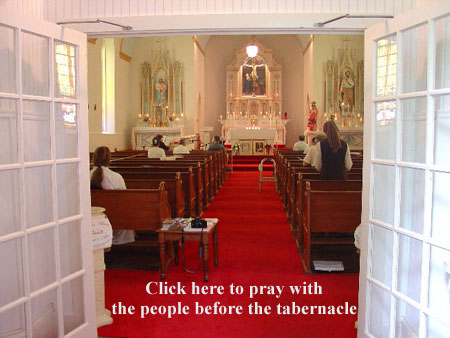
| Shepherds of Christ Daily Writing |
 |
March 18, 2010
|
March 19th Holy
Spirit Novena |
The Novena Rosary
Mysteries |
March 19, 2010 - 6:20pm
Please come and pray.
March 18, 2010
R. Dear God —
I love You so much — I am sorry
for any way I may have acted
out hidden unfinished relationships
that were painful and caused me
anger and bitterness that were never
healed and I may have acted in
anger and abuse to others in
my present life —
Heal my heart, oh Jesus,
Heal me of anger hidden in my
heart from painful
unhealed relationships
Jesus: Let go now
Hear the voice of Jesus —
Forgive those who hurt you in the
past —
Ask for forgiveness of those you
have hurt — tell God you are
sorry for any person you
offended unjustly — acting out
anger and unfinished business
on innocent others —
Ask the Holy Spirit fill you with light
to know your sins of pride,
making "Being right a god"
Is being right, justifying yourself —
more important than doing
God's will in love —
Who is your god —
false gods —
affection, being right, being 'smarter'
than everyone else —
being better, richer, prettier than
everyone else — so you don't
want anyone getting ahead
of you —
Stalling when others need to do God's work —
so you can have power — over
others —
Loving is having a heart like Jesus —
Would Jesus treat people like you do?
Are your unloving ways blocking
the work God wants done to
help souls get to heaven?
Would you like God to judge you
and treated you as you judged
and treated others?
Are you loving like Jesus?
R. Dear God, I am heartfully sorry
for my unloving ways — have
mercy on me — please help those
I have offended and hurt with
my sin of anger, pride, jealousy,
envy, greed, lust, gluttony,
slothfulness —
Dear God please forgive me for
sins of commission and
omission — I am sorry
I want my relationship with You
to be better
As I drove to China, I saw a man shaking his
fist at another driver going the
speed limit —
Yesterday I saw a man carried out of a steak
house to an ambulance —
Coming home from China on the 13th a man
by my house was killed by a hit and
run driver
Oh God — we are sorry for our sins —
In understanding more the Heart of
Like one who hurt us in a relationship —
We say we are sorry and bring them flowers —
our breach is healed — our relationship
renewed —
Sing: Give Me Your Heart oh Jesus
The prideful person comes with a
In understanding the Heart of Christ
and how we have offended Him and coming
in love — asking for forgiveness and mercy —
we then become closer in love with
Jesus and there is a soft loving union
in understanding how it is more
deeply with God and us —
Sing again — Give Me Your Heart oh Jesus
Deeper love in the Heart of Jesus —
Mending our relationship more and more
with God —
God has called us to grow in deeper and deeper
intimacy, to be so one with Him —
this is in preparation for our
relationship with God in heaven —
The human race has sinned — this ruptures
the relationship with God and with
each other —
Satan wants this rupture with God and
others —
Satan said "I will not serve You, God"
(the fallen angels)
God created us to love Him
God created us to serve Him
God created us to love each other —
This is why we were created in the image
and likeness of God — to love —
God is love —
So God has given us the Shepherds of Christ to
love our priests and love the Church and
love the souls —
We give our lives praying for the priests,
the Church and the world —
We help make reparation —
We understand the human race has
sinned —
We are so sorry for offending God —
We love God who is deserving of
our respect and love
We tell Him —
God we're sorry for the sins of
the human race —
Help us God to do Your work
We want to please You God
We love You so much
We want Your mercy —
We depend on You —
We give You our lives —
Jesus died for our sins —
We are carrying out the
mission Jesus began —
We understand our relationship more
with God
We are the creature
God is the Creator
Understanding our relationship more
and more with God —
This helps open ourselves in greater
oneness with God —
Oh God — A contrite heart create in
me —
Let me be cleansed more and more of
my sins —
Let my relationship with You be
ever deeper —
heal my heart so I am so one
with You
Oh God: I am sorry for all the sins of
my past life —
I am sorry for how I have
offended You and others
I am sorry with all my heart
how I have hurt others
with my sins —
Oh God please forgive me —
Help me to be holy —
Oh God I know sin hurts my relationship
with You and others —
When I act unloving I hurt my
relationship with You and others
Help me to heal in my heart from
past wounds of self-righteousness —
help me to heal from my sins —
Help me to see my offenses against
you and others and
to be sorry for my sins —
Help me to obey authority — those
doing God's will over me —
and not give into pride and
seeking dominance for
dominance sake —
Oh my God — forgive me for all my
sins of my entire life —
I want to be holy and
I want to serve You —
I want to help make reparation for the
sins of the human race —
I beg for Your mercy on the human
race —
I thank You God for the priests and the
Church
I thank You God for Your gifts to me —
I thank You God for baptism
I thank You God for the Eucharist
I unite to the Holy Sacrifice of the Mass,
through the intercession of Mary,
with all the angels and saints and
I pray dear God —
I beg to help make reparation for the
sins of the human race —
I beg for holy priests, I beg to
love the priest, the Church
and the souls You died for —
Song: Give Me Your Heart Oh Jesus
We can see what ordinary bread is
to human life and we see how the
Eucharist is so important to supernatural
existence.
The depth to which we can go in our
understanding of the mystery and
union with God is "limitless" and
"spiritual".
We live out the Pascal mystery of
death-resurrection — the dying to
ourselves not likened to God to live
the life of resurrection in our lives
and to bring that life of resurrection to
others.
Dying to the selfish ways of existence —
the tendencies to the flesh —
Pride, Greed, Envy, Wrath, Lust, Gluttony,
Sloth
to live in the freedom of being
more Christ-like
Who gave Himself as a sacrifice
for our sins
Christ who rose on the 3rd day —
Let us ponder that the Divine Almighty
God took on flesh
Word-make-flesh —
And let us ponder the resurrection of
Christ from the dead —
His glorified body —
Because of the fall of Adam and Eve
man was made to die and to
suffer here —
We see in this writing in Romans 8: 1-13
Romans 8: 1-13
Thus, condemnation will never come to those who are in Christ Jesus, because the law of the Spirit which gives life in Christ Jesus has set you free from the law of sin and death. What the Law could not do because of the weakness of human nature, God did, sending his own Son in the same human nature as any sinner to be a sacrifice for sin, and condemning sin in that human nature. This was so that the Law’s requirements might be fully satisfied in us as we direct our lives not by our natural inclinations but by the Spirit. Those who are living by their natural inclinations have their minds on the things human nature desires; those who live in the Spirit have their minds on spiritual things. And human nature has nothing to look forward to but death, while the Spirit looks forward to life and peace, because the outlook of disordered human nature is opposed to God, since it does not submit to God’s Law, and indeed it cannot, and those who live by their natural inclinations can never be pleasing to God. You, however, live not by your natural inclinations, but by the Spirit, since the Spirit of God has made a home in you. Indeed, anyone who does not have the Spirit of Christ does not belong to him. But when Christ is in you, the body is dead because of sin but the spirit is alive because you have been justified; and if the Spirit of him who raised Jesus from the dead has made his home in you, then he who raised Christ Jesus from the dead will give life to your own mortal bodies through his Spirit living in you.
So then, my brothers, we have no obligation to human nature to be dominated by it. If you do live in that way, you are doomed to die; but if by the Spirit you put to death the habits originating in the body, you will have life.
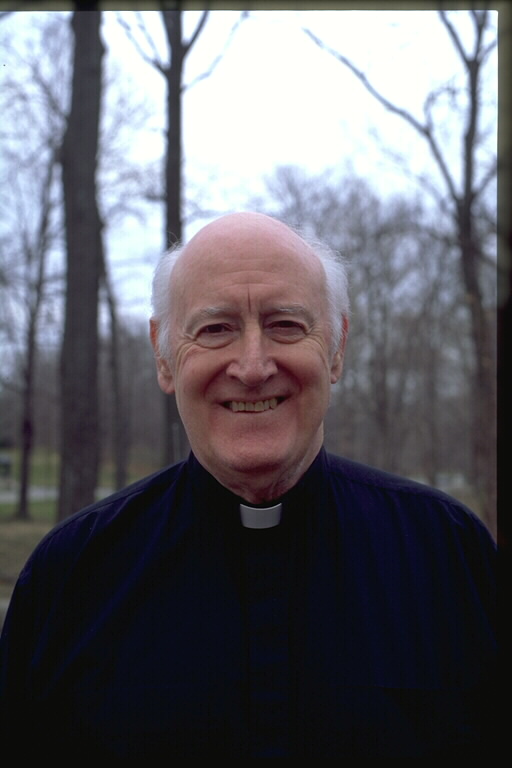
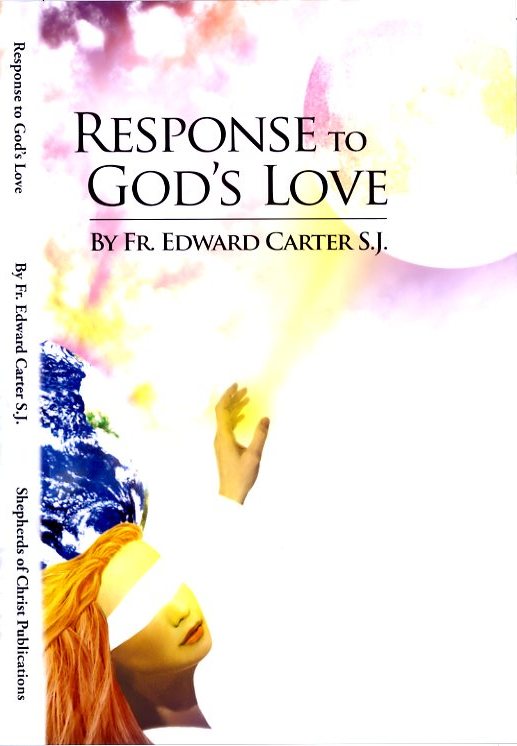
From Response to God's Love
Incarnationalism and Transcendence (excerpt)
end of excerptIncarnationalism is that Christian perspective which sees the material world to be deeply involved in the redemption of Christ. Humanity has been redeemed, and so also has the world. Earthly realities, consequently, must be taken seriously. It is the Christian's role, in fact, to help bring the redemption of mankind and the material world to completion. Incarnationalism, then, stresses the correct use of the world rather than renunciation. The Christian needs the material, the visible, the tangible aspect of creation in order to go to God. In essence, Christ has conquered completely and is the head of both humanity and the entire universe. The Christian must increasingly promote Christ's reign by a positive involvement in the world, an involvement that aids in the ongoing Christianization of the temporal order. According to incarnationalism, then, involvement with the world, not flight from it, is what is necessary.
Transcendence is that Christian perspective which emphasizes the spiritual aspects of Christ's kingdom. This perspective treats of those dimensions of our life in Christ that are beyond the material, the visible, the sense-perceived. This perspective also stresses the fact that the life of grace, in its fundamental reality, is a participation in the transcendent life of God. The transcendent perspective points out that although this life of grace has its very real beginnings here below, it will have its completion only in eternity. This is why, according to the transcendent perspective, we are always exposed to a certain restlessness, a certain sense of incompleteness. No material acquisition, no accomplishment, however great its significance, no personal relationship, even of the greatest intimacy can fully satisfy us, can bring us complete happiness. In the very act of possessing all of these, we are always transcending the present acquisition, the present accomplishment, the present success, the present joy that emanates from this or that personal relationship. We immediately crave more fulfillment, more happiness. This is our transcendent spirit crying out for the complete fulfillment and happiness that can only be satisfied by absolute being, God himself; and, according to God's designs, it is only in eternal life that he will communicate himself in such an intense fashion that our thirst for the infinite will be fully satisfied. Rahner describes our transcendent desire for the infinite in this fashion: "Man can try to evade the mysterious infinity which opens up before him in his questions. Out of fear of the mysterious he can take flight to the familiar and the everyday. But the infinity which he experiences himself exposed to also permeates his everyday activities. Basically he is always still on the way. Every goal that he can point to in knowledge and in action is always relativized, is always a provisional step" (Foundations of Christian Faith, p. 32). Consequently, the transcendent attitude reminds us that to a certain extent we are pilgrims in exile.
The transcendent attitude also reminds us that, although the Christian life must be respected in its incarnational dimensions, it ultimately rises above any particular incarnational structure that might be in vogue in any particular age of the Church. Also stressed by the attitude of transcendence is the fact that the life of grace has, as one of its thrusts, the desire for a more intimate union with the transcendent God as he is in himself. Involvement with the world is necessary, but the proper precautions must be taken so that the transcendent aspect of the Christian's life is not smothered by a false type of incarnationalism. Finally, there must be a certain degree of prayer, solitude, and renunciation in the life of any committed Christian.
Incarnationalism and transcendence, because they are such fundamental realities, are found in any and all of the various areas of the Christian's existence.
Rebelling against God's Plan is foolish —
Look at Adam and Eve and how we
were punished and wounded because
of their sin —
God intends us as members of the human race
to make reparation for the sins of
the human race —
We live the Pascal mystery of
death-resurrection — dying
to our impure ways to be
more like Christ —
We as members of the mystical body
of Christ are united to the Masses
going on around the world —


From Response to God's Love
Liturgical Participation (excerpt)
Fr. Carter says
In Jesus' sacrifice, the same five elements occur, although not exactly in the same order. There is the interior offering; Christ as priest offers himself to the Father in love for the purpose of adoration, thanksgiving, petition, and satisfaction for sin. This interior offering is then externalized at the ritual of the Last Supper. The victim, Jesus himself, is immolated upon Calvary. The Father gives a miraculous sign that he accepts Jesus' sacrifice through the resurrection. Finally, there is the sacrificial meal at the Last Supper.
Because the first element of Jesus' sacrifice is the most important—the interior dispositions of his human will—let us expand a bit upon it. Jesus' offering of himself was a total offering, wondrously diversified in its rich completeness. It was an offering that contained the entire life of Jesus; although Jesus' sacrifice became formalized only at the Last Supper and upon Calvary, it nevertheless embraced his entire life. The offering, or sacrifice, of Jesus contained, then, his teaching, his healing the sick, his acts of kindness to the poor and the ignorant and the unimportant, his patient training of the apostles—all this and more was included. Jesus' offering also included his personal relationships with Mary, Joseph, Lazarus, and others; it embraced, as well, his thrill at the beauty of nature, the simple joys shared with friends, his welcoming the children who loved to come to him, the enthusiasm and zeal that buoyed him as he went about his Father's business. Moreover, Jesus' sacrifice included his endurance of the unpleasant side of the human condition—the pettiness and meanness of some, the hardness of heart he often encountered, the ugly selfishness that bursts forth and often mars the beauty of the person and that, ultimately, put Jesus to death.
Unlike Christ's earthly sacrifice, which he and he alone offered to the Father, the Eucharist, by God's gracious design, is also the Church's sacrifice. It is Christ's sacrifice, but it is also ours, for we are priests and victims along with Jesus, the chief priest and chief victim. As Christ's offering of himself is renewed and continued in the Mass, our offering of ourselves is also included. Furthermore, just as Christ's earthly offering included everything in his life, so also the offering that we make of ourselves at the Eucharist is meant to touch all the authentic experiences of our Christian lives. Our friendships, our love for one another, our service to mankind—all this is part of our eucharistic offering. Bearing properly with physical pain, frustration, failure, misunderstanding, boredom, anguish of spirit—this, too, we offer at the altar. To love and be loved by another human—and to be in wonder at this mystery of love—is also a cherished part of our eucharistic offering. To enjoy a meal together, to walk by the seashore, to drink in the morning freshness, to feel the warmth of the summer sun and the invigorating cold of a winter day—this also we offer with Jesus. The Eucharist, then, gathers up what would otherwise be the too-fragmented pieces of our lives and gives them a marvelous unity, a Christ-like unity. The Eucharist permeates these pieces of our lives with the love, the beauty, and the strength of Jesus' own offering and then presents them to the Father under the guidance of the Holy Spirit. We see, then, the richness and extensiveness of the eucharistic sacrifice's first element—the interior offering.
The second element of sacrifice—that is, the external, ritualized offering—is easily recognized at each Eucharist because each Eucharist is a ritual of celebration. We all know that special days of celebration are important for both families and civil society. The celebration of a birthday or a wedding anniversary can do much to lift family spirits. The strictly ordinary is temporarily dispensed with; family members dress up a bit, have special food and drink, and otherwise make the day of celebration different from the usual routine of daily existence. Civil society acts similarly for its days of celebration; business and industry often close down for the day, parades frequently mark the occasion, and special banquets or galas help make the day seem special.
The Eucharist is the main setting for the celebration of the Christian community. Some liturgies are very special moments of celebration—Easter and Christmas are obvious examples. But daily liturgies are celebrations, too, although obviously on a smaller scale than that of the major liturgical feasts. The daily liturgy can truly be called a celebration because a special event—the Christ-event that is centered in Jesus' death-resurrection—is always being called to memory and sacramentally re-enacted. Furthermore, each liturgy briefly raises us above—notice, we are not saying that each liturgy falsely separates us from—the ordinary setting of our lives. Refreshed by the special setting of the Eucharist and nourished by Christ himself, we are meant to return to the secular framework of life with a deepened desire to live Christ.
We can easily conclude from what we have been discussing that the externals of the liturgy should not become too commonplace. Certainly the rather rigid ritualism of the pre-Vatican II liturgy is not what we now judge to be desirable. Any celebration, despite the fact that it purports to be something quite different from what the participants daily experience, still must allow the participants to feel at ease with one another and the total situation. The setting of the Eucharist must likewise allow the participants to feel basically comfortable with one another and able to experience a sense of familiar connaturality with the celebration. On the other hand, if the Eucharist is celebration, its setting, its ritual, cannot become so ordinary that its participants tend to lose sense of the specialness of the event. Remember, one of the purposes of celebration is to provide a special type of experience, something quite different from the ordinary course of our lives. Consequently, the liturgy, as sign or ritual, has to achieve a rather delicate balance; it must be enacted in such a manner that we will feel at ease while, at the same time, it still remains something special.
The balance of ritual also has to be concerned with another factor. Ritual is also meant to be meaningful, that is, ritual is meant to point to the invisible realities of the liturgy in a way that is pertinent and attractive to the participants. The participants, for their part, have a responsibility toward the sign of the liturgy. The liturgy, as sign, presupposes the faith of the participants; no matter how perfect the external liturgy might be, it cannot be really meaningful to one who lacks faith. Conversely, the deeper the participants' faith is, the more meaningful is the liturgy of sign. We can also say that the more mature one's faith is, the better prepared he or she is to bear with possible deficiencies in the liturgy of sign. Persons of mature faith might well decry these shortcomings and take all reasonable steps to better the situation, but they will still love the Eucharist and derive deep meaning from it rather than give up participating in such a treasured event just because the external liturgy might be deficient.
The third element of sacrifice, immolation, touches Christ and us because we are both victims in the eucharistic offering. The immolation of both Jesus and us is, obviously, an unbloody one. Traditionally, the immolation of Jesus has been seen in the separate consecration of the bread and wine. Moreover, the very words of consecration manifest Christ as being in the state of victimhood.
Our immolation in the Eucharist is a mystical one. Summarily, we become victims with Christ by conforming our wills in love to the Father's will. Conformity was the essence of Christ's sacrifice, of his victimhood, of his immolation; a similar conformity must therefore be found in the victimhood and immolation of Christ's members. This mystical immolation is a lifelong process; each Eucharist that we participate in should mark a growth in our victimhood. As true Christians, we should desire to die more and more to all that is not according to God's will so that we might rise to greater life with Christ—both here upon earth and in eternity. Jungmann strikingly portrays the situation: "Every sacrament serves to develop in us the image of Christ according to a specified pattern which the sacramental sign indicates. Here the pattern is plainly shown in the double formation of the Eucharist; we are to take part in His dying, and through His dying are to merit a share in His life. What we here find anchored fast in the deepest center of the Mass-sacrifice is nothing else than the ideal of moral conduct to which the teaching of Christ in the Gospel soars; the challenge to an imitation of Him that is ready to lose its life in order to win it; the challenge to follow Him even, if need be, in His agony of suffering and His path of death, which are here in this mystery so manifestly set before us" (The Mass of the Roman Rite, p. 146).
We have said that the fourth element of sacrifice refers to God's acceptance. If sacrifice is to have its desired effect, it must be pleasing to God. That the Father always accepts the eucharistic offering is certain, for the principal priest and victim is Jesus himself who is always supremely acceptable to the Father. What is more, the Father always accepts the subordinate priesthood and victimhood of the People of God, for even though the Eucharist may be offered through the sacrilegious hands of an unworthy priest, there is always a basic holiness in the Church that is pleasing to God. Because of this holiness, the Father always accepts the Church's sacrificial offering, for each Mass is the sacrifice of the whole Church and cannot be fundamentally vitiated by the basic unworthiness of any particular member or members—even if that member is the officiating priest.
What do we say concerning the Father's acceptance of the sacrificial offering of the individual Christian? Such an offering will be acceptable in proportion to the Christian's conformity in love to the Father's will. Again, Jungmann has words for us: "It follows that an interior immolation is required of the participants, at least to the extent of readiness to obey the law of God in its seriously obligatory commandments, unless this participation is to be nothing more than an outward appearance" (Roman Rite, p. 146).
The last element of the eucharistic sacrifice, the meal, is, obviously, a very important part. The Eucharist as meal is a rich reality. It is the sign of Jesus' complete self-giving and, consequently, a sign of Jesus' fathomless love for us. This sign actually contains what it signifies. In the Eucharist, Jesus comes to us in his entirety. There is no holding back on his part; his boundless love for us results in boundless giving.
If the Eucharistic meal is a sign of Jesus' self-giving, it is also a sign of our self-giving. In receiving divine food, we pledge ourselves to a deeper God-like existence. We pledge that, in love, we will strive for a more radical giving of ourselves to both God and others. Each eucharistic meal that we participate in is a new opportunity for a more perfect assimilation to Christ and his mysteries, especially the mysteries of death and resurrection. Each eucharistic meal that we participate in increases our responsibility to live Christ, that is, to more fully incorporate the Gospel ideal in all that we do.
The fact that our participation in the eucharistic meal is a sign of our self-gift not only to God in Christ, but also to one another leads us to a consideration of the communal aspect of the meal. The eucharistic meal is a great sign and cause of our unity in Christ. Rahner maintains that "insofar as everyone participates in the same meal of Christ, who is the giver and the gift at the same time, the Eucharist is also the sign, the manifestation and the most real actualization of the church insofar as the church is and makes manifest the ultimate unity of all men in the Spirit, a unity which has been founded by God in grace" (Foundations of Christian Faith, p. 427). We are therefore to receive the one and same Christ, the implications of which are far-reaching. In receiving the one and same Christ we are actually pledging ourselves to unity both among ourselves and with all mankind. We are pledging ourselves to uproot from our hearts those attitudes that work against the building up of community in the Church and in the world. We are pledging ourselves to look upon others with a sense of respect, love, and even wonder as we marvel at how God's love has created and redeemed each one, at how the blood of Jesus has salvifically touched each one. Our participation in the eucharistic meal truly pledges us to these ideals. We, for our part, must ask ourselves whether we are actually assimilating these ideals. We must ask ourselves whether we are allowing the Eucharist to transform us into more loving and concerned persons, persons less and less influenced by forces that disrupt and tend to weaken and destroy communal unity.
The discussion of the communal aspect of the eucharistic meal reminds us that the entire eucharistic sacrifice is a covenant act. What is covenant? In the context of salvation history, a covenant is an agreement, a bond, a union, a life relationship both between God and his people and among the people themselves. At the Last Supper, Jesus emphasized the covenant aspect of the Eucharist: "During the meal Jesus took bread, blessed it, broke it, and gave it to his disciples. 'Take this and eat it,' he said, 'this is my body.' Then he took a cup, gave thanks, and gave it to them. 'All of you must drink from it,' he said, 'for this is my blood, the blood of the covenant, to be poured out in behalf of many for the forgiveness of sins' " (Mt 26:26-28).
When Jesus speaks of his blood as "the blood of the covenant," we are reminded that blood sealed or ratified the Mosaic covenant at Mt. Sinai. Moses sprinkled blood upon the altar, which represented God, and upon the Jewish people. Because blood was a distinctive symbol of life for the Jews, such an action had a deep significance for them. This action of Moses symbolized the sealing or ratification of the covenant—a new life relationship between Yahweh and the Jews.
The blood of Jesus has also formed a covenant—the new covenant. In the shedding of his blood, Jesus has established a new life relationship between his Father and mankind. Forming a core focal point of redeemed mankind are the people of the new covenant, namely, the members of the Christian community, the Church. The Eucharist, in recalling and sacramentally re-enacting the shedding of Jesus' covenant blood, is the Church's great covenant act. The Eucharist sustains the life of the covenant, nourishes it, causes it to grow to greater maturity. Through participation in the eucharistic liturgy we should be growing in covenant attitudes—in a sense of community, in a deep love of the Church, in a desire to contribute our share to the building up of this Body of Christ. We should be learning to curb our selfishness because it deadens a dynamic concern for the Christian community and makes us a burden to the brethren. Participation in the Eucharist should also be curbing divisive jealousy, forming us more and more as persons who want to deeply love one another so that it can more often be said of us, "See those Christians, how they love one another." The Eucharist can more radically shape us according to these covenant attitudes if we allow it. We repent concerning the times we have resisted; we rejoice concerning the times we have opened ourselves to the Eucharist's transformative power.
end of excerpt
God wants us to help make reparation for the sins
of the world. Oh God I am sorry for the sins of the
human race — Oh God forgive us, have mercy on us —
Every time Mass is celebrated we as members of the
mystical body of Christ are united to all the Masses
going on around the world —
The devil is sneaky — he tempts people for years
to give into habitual sins — they then hurt their
spiritual life and the life of those around them —
Disharmony to God's will is being a rival to the
Plan for why God created us.
The greatest commandment is to love God with
our whole heart, our whole soul, our whole being
and love our neighbor as ourselves — When we are
unloving — Fr. Carter said this is sinful —
The priest, my cousin, talked about if you have
something with your brother be reconciled before
you come to my altar — This is important — to
be reconciled
What about a person sinning in Church with
anger in their hearts — how can they justify blocking
people and being angry at Church —
Anger within is an energy — people who
provoke others to watch them get angry — who
stall to make others angry when they are to
do work and use their work — holding back
the needed work, information until they make
others angry are what I believe is slothful —
This can become more and more advanced —
The seven deadly sins are:
Pride, Greed, Envy, Wrath, Lust, Gluttony,
Sloth
The more one lives in a state of sin, anger,
slothfulness, envy, jealousy, disobedience
to structure — the more one gives into
darkness —
Where others are growing in love and unity —
kindness, harmony, growing in the
virtues
A person going deeper and deeper into darkness —
projects their anger on innocent others —
they need victims so they can provoke
them and then when they push and push
until finally a climax — a show down
occurs —
the person addicted to hurting, provoking
others — goes into a new phase of
how they are right —
their habits of provoking become more veiled —
they deceive, cover-up their evil ways,
anger and —
can be constantly proving or trying to
prove in their evil ways they are
right when in fact they are sinning —
The devil tries to show right is wrong —
and the devil tries to make wrong look right —
The devil is a liar —
The devil wants people to lie or do evil and then
cover - it - up so they can say "I am right,
you are wrong"
When a spiritual director tries to uncover the workings
of satan in this evil — the person engaging in
the evil is indignant if they do not have
a heart that is trying to improve —
The devil works more and more in the hard heart
which can become enslaved to performing
sinful acts with greater deceptiveness and
then the ones without contrite hearts —
indignant that one would dare try to
uncover their evil ways —
justifying "I am right - you are wrong" —
"I have done no evil they say and they try
to prove one trying to stop the evil
the wrong person."
Evil is evil — when one is to do a job and
they use the job to provoke and stall
and act like they don't even know it
is their job — after it being their daily
job over years — they are hugging
their sin and becoming lost in it —
Lies are used by those working against a good
work that needs to be accomplished —
A person can become aggressively combatal and
deceptive at the same time — by slyly
provoking others — they show to the
world — the person who has been the
victim of serious attacks, subtly
by them and they walk away in a
white dress, collar pressed and their
joy is in upheaval — they accomplish
their task of hurting others and this
gives them satisfaction — even joy —
Christ's heart is meek and tender — soft and loving —
A man engaged in evil and continuing in this
path has a harder and harder heart —
An uninformed conscience — greater blindness —
A person in authority — has the power
—
God had the power in the Garden of Eden
A person in authority obeying God's will —
does not want a conflict with
one under them —
The devil attacks through the man under
a man in charge doing
God's will — can be challenged and argued with
by a man under one in authority.
This combat is disobedience to authority.
10 people may support the person in authority,
but the devil uses a person of weak
will and giving into evil to be
disobedient, to challenge and to
withhold the real story from those
over them to make a house of cards
falling down —
A man under authority working with evil
in his heart
challenges the authority and withholds
information, lies about it,
stalls with it — using it to
provoke to upset a well operated
organization
When lies are used — how deep is the lie?
When a person lives in sin provoking
others — how severe is the
tearing up process they engage in —
The devil wants hatred
The devil wants deception
The devil wants lies
The devil wants to tear apart those building
a unit of love —
People wanting disobedience will create health
issues, failure of mechanical works,
anything to DISOBEY and be RIGHT about it
The devil tempted Eve in the garden until he
coaxed her to disobey —
Adam did too —
What lesson did you learn in Chapter 3 of Genesis
the first book of the Bible?
And God is a just God and we were punished
and the human race all has a fallen
human nature because of the sin
except for Mary, who was conceived
without sin. Jesus is a Divine
Person with two natures Human and Divine —
Jesus, A Divine Person, came because of this sin
against Divinity — the sin was so grave —
Jesus paid for the disobedience of Adam and Eve
and all of our sins.
The human race sinned.
Jesus gives us the Holy Sacrifice of the Mass —
We are to be making reparation to God, as
members of the mystical body of Christ
for our sins — for the sins of the
human race as a whole —
We are to help make reparation to God for
sins
Jesus died for our sins —
Jesus taught us about the rupture, the
relationship that was hurt by
the sin of Adam and Eve
Jesus came and died for the sins of the
human race —
We as members of the body of Christ
are to help make reparation for the
sins of this world
Give a gift that lasts.
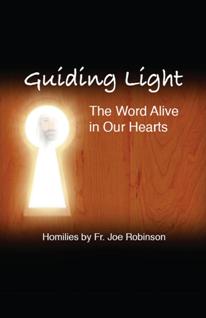
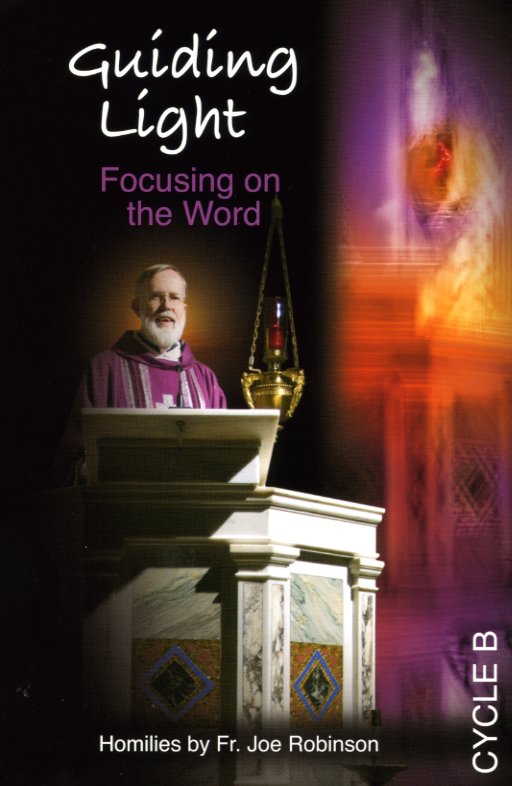


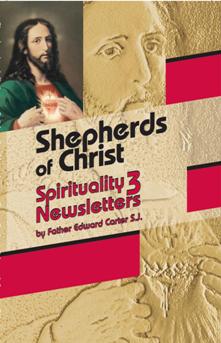
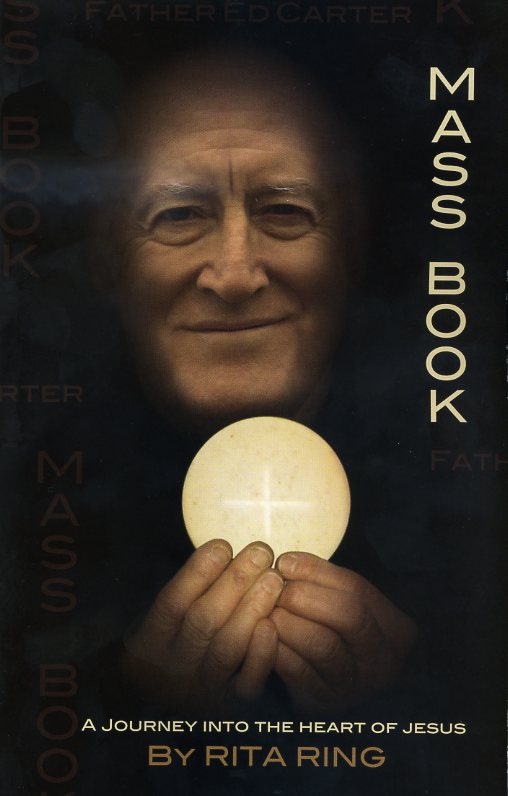
$10.00 each plus shipping
Call 1-888-211-3041
Shepherds of Christ
We can send Fr. Joe's
homily book to a priest for 75¢.
Can you please help us get
these homilies to the priests?
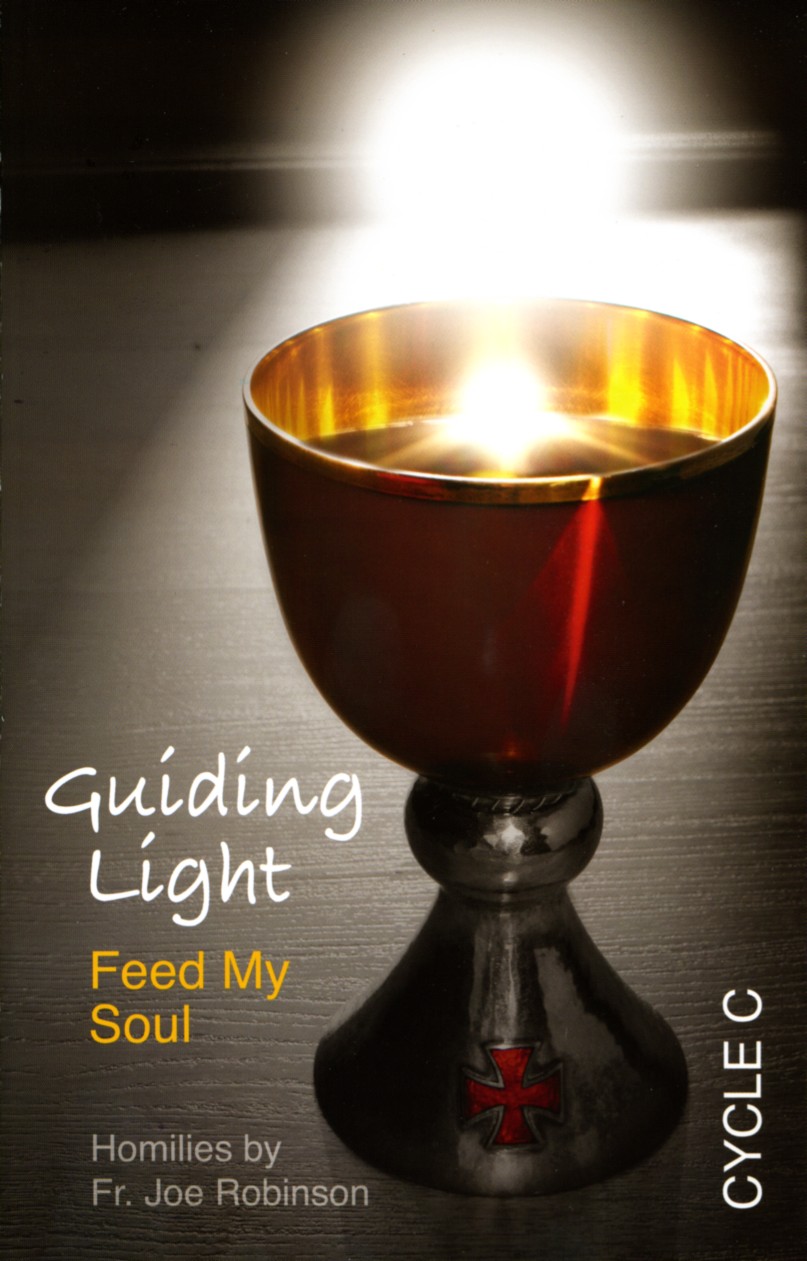
Please help us with your donation.
Call Shepherds of Christ
1-888-211-3041
NEW! — 11" St. Michael - $40.00 plus shipping
Prayer Cards available
Holy Spirit Prayer Act of Consecration to
Immaculate Heart of MaryAct of Consecration to
Sacred Heart of JesusPrayer for Priests
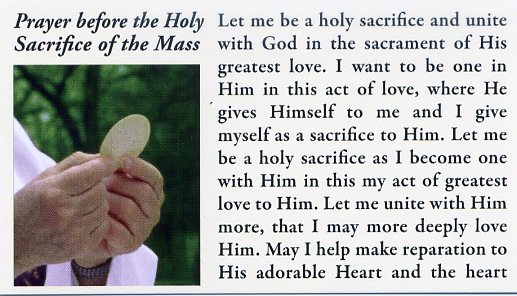 |
| Prayer before the Holy Sacrifice of the Mass |
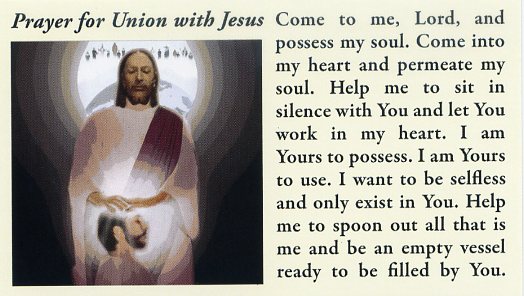 |
|
Prayer for Union with Jesus |
Available for .25¢ each plus postage
Call Shepherds of Christ
1-888-211-3041
Prayer Card 4" x 6"
.50¢ each plus postage


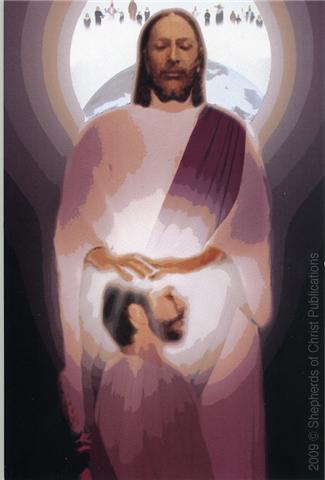


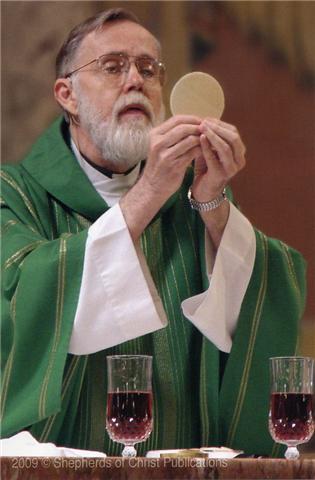
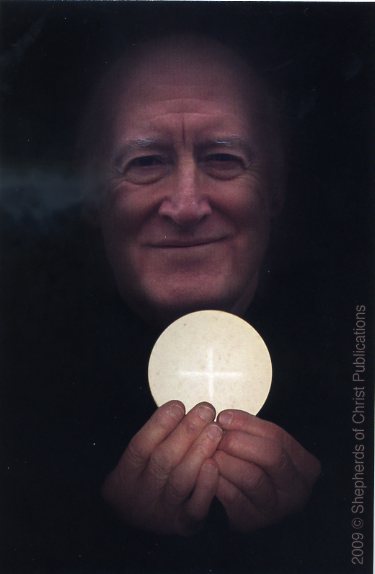
size 5 1/2" x 8 1/2"
$1.00 plus postage
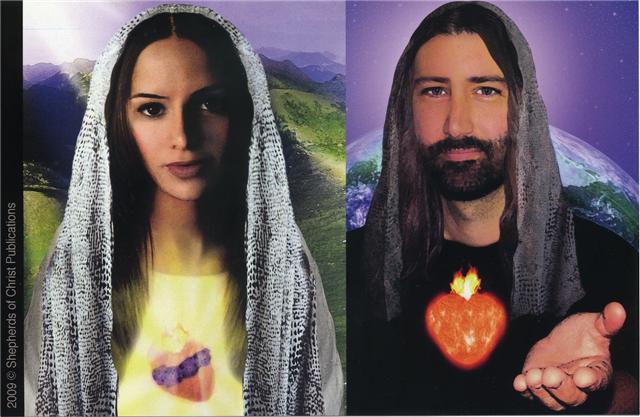
Statues
Sacred Heart of Jesus w/glass - 18
Our Lady-Guadalupe w/glass - 12
Limpias - 8
Immaculate Heart w/glass - 18
I Heart - Ivory w/glass - 18
Our Lady of Grace w/glass - 18
Our Lady-Mt. Carmel w/glass - 18
Our Lady of Lourdes w/glass - 18
Infant of Prague w/glass - 24
Sacred Heart of Jesus w/glass - 24
Sacred Heart -Blessing w/glass - 24
Sorrowful Mother w/glass - 24
I Heart - Ivory w/glass - 24
I Heart of Mary w/glass - 24
Our Lady of Lourdes w/glass - 24
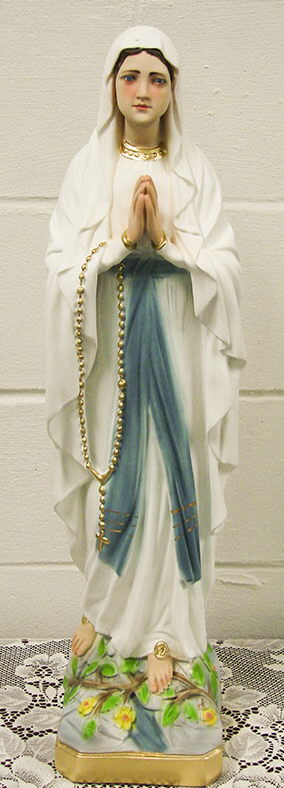
Our Lady-Guadalupe w/glass - 28
Our Lady of Grace w/glass - 24
Our Lady-Mt. Carmel w/glass - 24
Fatima w/glass - 11
Pilgrim Virgin w/glass - 12
Pilgrim Virgin w/glass - 15
Fatima w/glass - 18
Pilgrim Virgin w/glass - 18
Pilgrim Virgin w/glass - 27
St. Padre Pio
St. Joseph
St. Therese
St. Francis
St. Anthony
St. Claire
Limpias
St. Jude
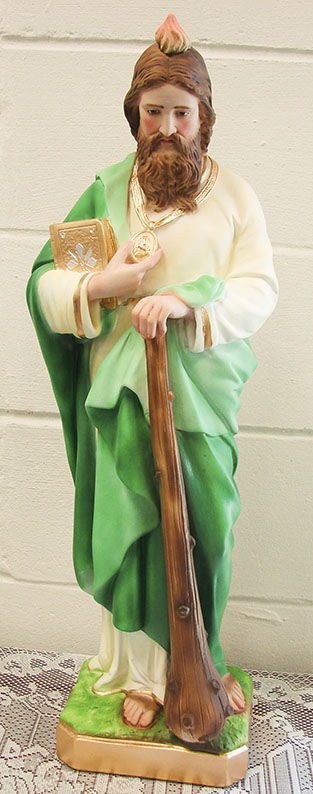
Divine Mercy
Holy Family
Angel
St. Philomena
Pieta - Marble
Pieta - Color
Holy Family
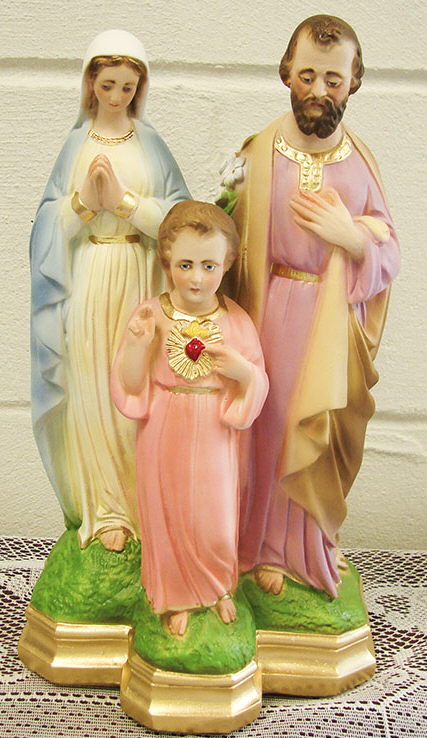
St. Anthony - 18
St. Francis - 18
St. Joseph - 18
St. Therese - 18
St. Rita - 18
St. Clare - 12

St. Rita - 12
St. Padre Pio - 12
Divine Mercy - 12
Shepherds of Christ Ministries
P. O. Box 627
China, IN 47250
Toll free - 1-888-211-3041
Local - 1-812-273-8405
fax - 1-812-273-3182
web: www.sofc.org
e-mail: info@sofc.org
Size Price Quantity Holy Family
24"
$180
Limpias
24"
$125
St. Anthony
24"
$125
St. Claire
24"
$125
St. Francis
24"
$125
St. Joseph
24"
$125
St. Jude
24"
$125
St. Padre Pio
24"
$125
St. Therese
24"
$125
Divine Mercy 22"
$125 Angel 22"
$100 St. Philomena 20"
$100 St. Philomena 16"
$65 St. Joseph 18"
$65 St. Francis 18"
$65 St. Anthony 18"
$65 St. Rita 18"
$65 St. Therese 18"
$65 Pieta - Color 15" $75 Pieta - Marble 15" $75 Holy Family 12"
$60 St. Padre Pio - standing 12"
$40 St. Padre Pio - sitting 8"
$50 St. Rita 12"
$40 Divine Mercy
12"
$40 St. Claire 12"
$40 Limpias 8"
$25 Our Lady of Guadalupe w/glass 28"
$500 Our Lady of Mt. Carmel w/glass 24"
$500 Immaculate Heart of Mary w/glass
24"
$500 Immaculate Heart - Ivory w/glass
24"
$500 Infant of Prague w/glass
24"
$500 Our Lady of Grace w/glass
24"
$500 Our Lady of Lourdes w/glass
24"
$500 Sacred Heart of Jesus w/glass 24"
$500 Sacred Heart -Blessing w/glass 24"
$500 Sorrowful Mother w/glass
24"
$500 Immaculate Heart of Mary w/glass 18"
$300 Immaculate Heart - Ivory w/glass 18"
$300 Sacred Heart of Jesus w/glass 18"
$300 Our Lady of Lourdes w/glass 18"
$300 Our Lady of Grace w/glass 18"
$300 Our Lady of Mt. Carmel w/glass
18" $300 Our Lady of Guadalupe w/glass 12"
$200 Fatima w/glass
11"
$150 Fatima w/glass
18"
$250 Pilgrim Virgin w/glass 12"
$160 Pilgrim Virgin w/glass 15" $200 Pilgrim Virgin w/glass 18" $250 Pilgrim Virgin w/glass 27"
$450
Call for Shipping Price (1-888-211-3041)
Name
Sub-Total Address
IN Tax (7%) City
Shipping State Zip
Donation Telephone
Order Total
Shepherds of Christ
P. O. Box 627
China, IN 47250
Call Shepherds of Christ
1-888-211-3041
Fr. Joe's Homily Books
Guiding Light - Cycle A
The Word Alive in Our Hearts$10.00
Guiding Light - Cycle B
Focusing on the Word$10.00
Guiding Light - Cycle C
Feed My Soul$10.00
Fr. Carter's Books
Priestly Newsletter Book I
12 Newsletters
July 1994 - June 1996$12.00
Priestly Newsletter Book 2
17 Newsletters
1996 - 1999$12.00
Priestly Newsletter Book 3
4 Newsletters & Prayers
2000$12.00
Response to God's Love
$10.00
Messages given
by Jesus and Mary 1994
Tell My People
$10.00
The Pain and the Joy
$10.00
Synopsis of the Spiritual Life
Spirituality Handbook
$3.00
Priestly Newsletter on CD
2000 - Issue 1
$10.00
Priestly Newsletter on CD
2000 - Issue 2
$10.00
Fr. Pasquini's Books
Authenticity
Prayers and Meditations
$10.00In Imitation of Two Hearts
For those suffering or
in Nursing Homes
$10.00Light, Happiness and Peace
Journeying through traditional
Catholic Spirituality$10.00
Medicine of Immortality
Prayers and Meditations - will assist the reader in growth toward a deeper understanding of the mystery of the Eucharist
$10.00
Ecce Fides - Pillar of Truth
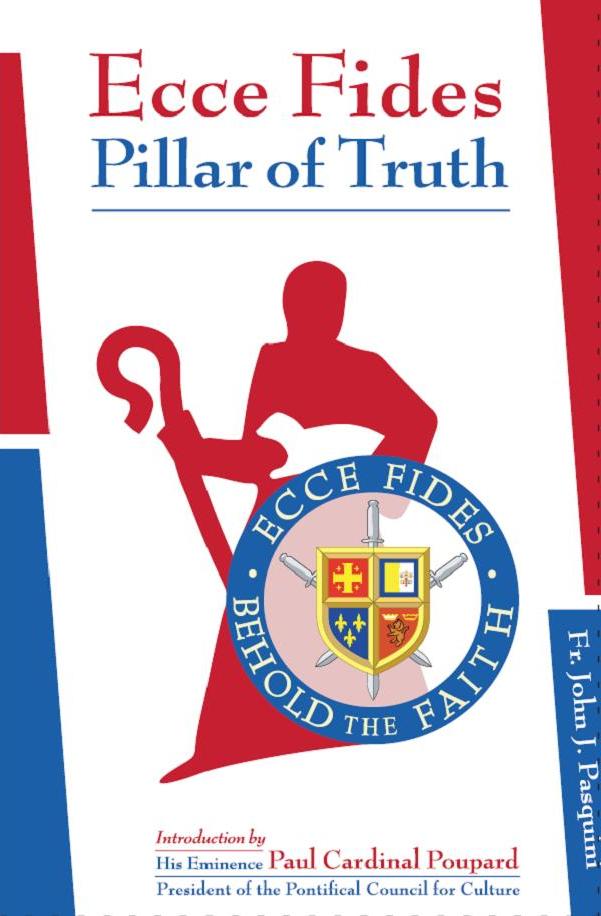
Ideal for RCIA, Adult & Youth Bible Study, Homeschooling, Catholic
Identity Studies$10.00
Shepherds of Christ Newsletters
9 Newsletters
2006 - 2008
$36.00
DVDs and CDs by Fr. Pasquini
Authenticity DVD
Prayers on the Ocean$10.00
Nursing Home Mass DVD
$10.00
Consolation DVD
$10.00
Medicine of Immortality
Read by Rita Ring2 CDs - $17.00
In Imitation of Two Hearts DVD
$10.00
Consolation CD
by Fr. John$8.00
Nursing Home Mass CD
$8.00
Holy Spirit Novena DVD
$10.00
Divine Mercy Chaplet DVD
$10.00
plus shipping
Call Shepherds of Christ
1-888-211-3041
Available for $10.00 plus postage
1-888-211-3041
Call Shepherds of Christ
God’s Blue Books
God’s Blue Book 1 –
Teachings to Lift You Up$10.00
God’s Blue Book 4 –
The Love of the Hearts of
Jesus and Mary$5.00
God’s Blue Book 2 –
The Fire of His Love$10.00
God’s Blue Book 5 –
So Deep Is the Love of His Heart$5.00
God’s Blue Book 3 –
Love God, Love One Another
(Fr. Carter's favorite)
$10.00
God’s Blue Book 6 –
He Calls Us to Action$10.00
Rosary Books
We are trying to get
Response to God's Love
and the Mass Book out.
Anybody who wants to help us
with a donation to get these 2 books
out in the Priestly/hierarchy mailing —
Please call Shepherds of Christ
1-888-211-3041
July 31, 1994
Words of Jesus to Members of
Shepherds of Christ Associates:"My beloved priest-companion, I intend to use the priestly newsletter, Shepherds of Christ, and the movement, Shepherds of Christ Associates, in a powerful way for the renewal of My Church and the world.
"I will use the newsletter and the chapters of Shepherds of Christ Associates as a powerful instrument for spreading devotion to My Heart and My Mother's Heart.
"I am calling many to become members of Shepherds of Christ Associates. To all of them I will give great blessings. I will use them as instruments to help bring about the triumph of the Immaculate Heart and the reign of My Sacred Heart. I will give great graces to the members of Shepherds of Christ Associates. I will call them to be deeply united to My Heart and to Mary's Heart as I lead them ever closer to My Father in the Holy Spirit."
- Message from Jesus to Father Edward J. Carter, S.J., Founder, as given on July 31, 1994,
feast of Saint Ignatius Loyola, Founder of the Society of Jesus (The Jesuits)
The China Church is over 140 years old
and we pray in there 24 hours a day.
It needs stucco and so does
the community building.
Can you please help us?
Call Shepherds of Christ
1-888-211-3041
Likewise the priest house
is 150 years old.
Jesus told us to repair it
which we have been doing.
We need $13,000.00 for this work.
You can help put the Blue Book V
in the hands of 1,000 people
we need $1,200 postage for this
It is ready to go
Call Shepherds of Christ
1-888-211-3041
Crucifix — hand carved by Felix
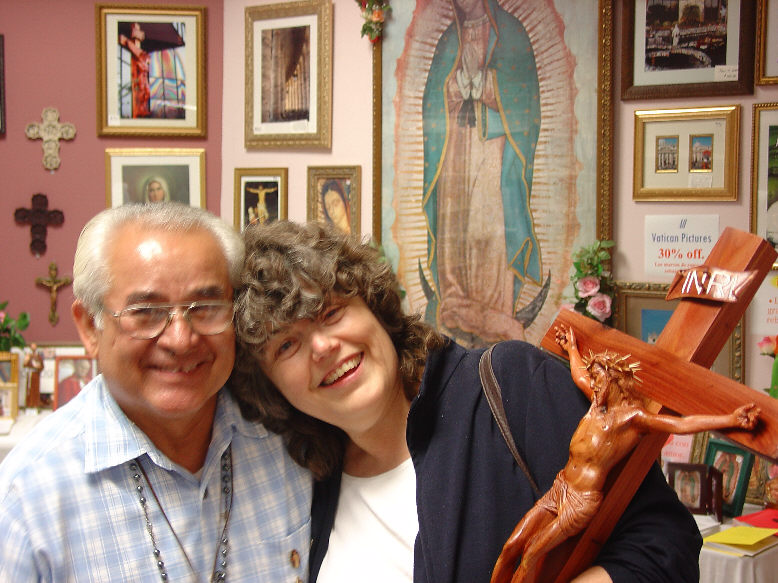
Available for $750.00
Brand New Internet Store